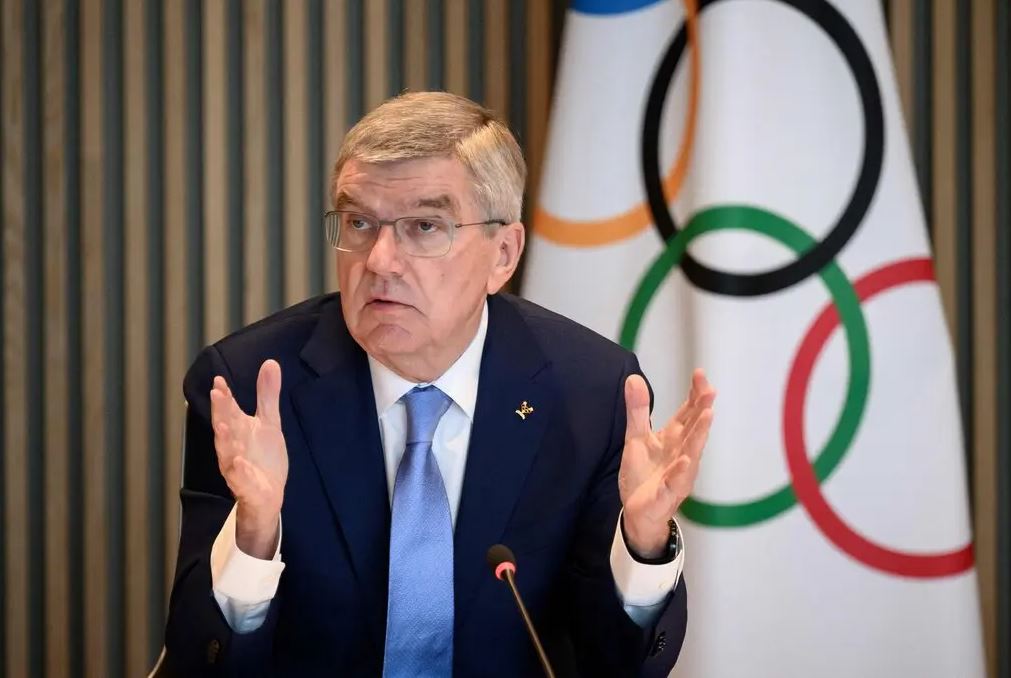Despite the objections of dozens of governing bodies who want the countries to remain sporting outcasts while they wage war in Ukraine, international Olympic officials on Tuesday delayed a final decision on whether or not to allow athletes from Russia and Belarus to participate in next year’s Paris Summer Games.
Nonetheless, the International Olympic Committee did provide a route through which competitors from Russia and Belarus might try to qualify for the 2020 Games. That came in the form of a set of recommendations issued to its member sports federations that will allow individuals from the two countries to participate in international events as neutrals, giving them a chance to earn places at the Games even though their countries are barred from sending a team.
Almost simultaneously, though, Bach made it plain that the organisation will welcome athletes from Russia and Belarus despite the fact that the invasion is now in its second year and that both UN investigators and the International Criminal Court have found evidence of war crimes in Ukraine.
At an online press conference, a Ukrainian journalist questioned Bach directly why the Olympic committee had reversed its position. He gave two reasons for this. The first was that Russian and Belarusian sportsmen have competed against Ukrainians in international athletic events. This is especially true in tennis competitions.
After the discovery of a massive, state-sanctioned Russian doping programme, which corrupted several international events, and then a second attempt by the country to block investigators from discovering how many Russian athletes had been part of the programme, the International Olympic Committee (I.O.C.) came under fire for its attitude towards Russia even before the war.
It was unknown what would happen to Russian and Belarusian athletes who tried to participate in international tournaments, or which events would enable them to return. For instance, because of Russia’s invasion of Ukraine, the international governing body for track and field decided last week to extend its ban on all Russian and Belarusian athletes “for the foreseeable future.”
On Tuesday, a representative for World Athletics claimed the federation was seeking to get the Olympic Council of Asia to adopt its policies. The International Olympic Committee has been putting pressure on that group to ensure that athletes from Belarus and Russia will be able to compete at the Asian Games later this year. The plan was for their results in the competition to count as Olympic trials for the upcoming Paris Games.
But, according to the World Athletics spokesperson, the organisation is now attempting to convince the Asian Games’ organisers to exclude participants from Russia and Belarus and to make it clear that only Asian athletes’ achievements would count towards Olympic qualifying. Several European nations continue to express opposition to Russia and Belarus’ membership in European sports confederations, despite the fact that Russia and Belarus are already members.
There has been widespread opposition to the I.O.C.’s plans to loosen restrictions on Russian and Belarusian athletes. More than 30 sports ministers and government officials, including those from some of the most important countries in the Olympic movement, petitioned the I.O.C. in February to prevent Russian and Belarusian athletes from competing internationally so long as their countries remained involved in the conflict in Ukraine.
There are “serious concerns about how feasible it is for Russian and Belarusian athletes to compete on a neutral basis given that they are directly funded and supported by their states,” the group of countries, which included the United States, Britain, Germany, and dozens of others, said of the current I.O.C. policy of allowing athletes from the two countries.

